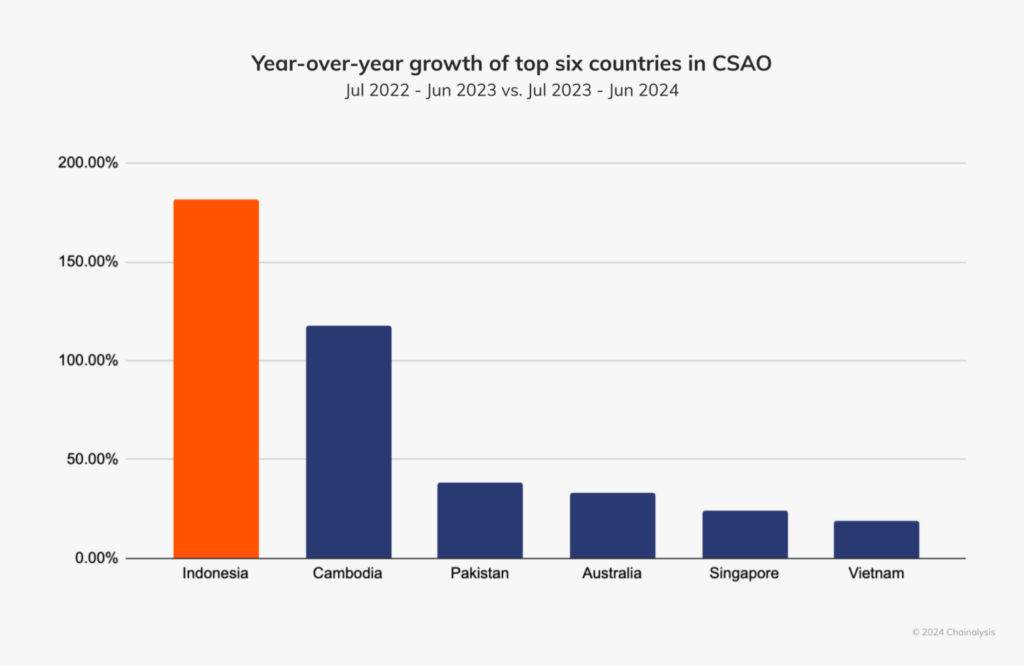|
Getting your Trinity Audio player ready...
|
Indonesia’s financial market watchdog has issued a new exchange license to Tokocrypto amid claims that the licensing favors a few big firms.
The Indonesian Commodity Futures Trading Regulatory Agency, commonly known as Bappebti, issued the Physical Crypto Asset Trader (PFAK) license to Tokocrypto this week as the Southeast Asian country reins in its burgeoning digital asset industry.
Tokocrypto, which hit 4.5 million registered users this year, first registered as a Prospective Physical Crypto Asset Trader in 2019, in line with Bappebti’s new ‘crypto’ market requirements. In the following years, the watchdog subjected the exchange to “a rigorous licensing process,” which it has now completed.
CEO Yudhono Rawis says the license is a major step for the exchange and the entire Indonesian digital asset sector.
“We are proud of this achievement to become the third exchange to receive PFAK license in Indonesia, the market which has 35 prospective crypto exchanges registered with Bappebti,” Rawis stated.
Tokocrypto is a Binance subsidiary following a 2022 acquisition.
Indonesia’s regulator is killing competition: Industry leader
While the Indonesian Bitcoin sector lauded the license, some have raised concerns that the watchdog could be inadvertently plunging the sector into “monopolistic or oligopolistic market conditions.”
Speaking to one media outlet, Tuhu Nugraha alleged that the licensing regime has become almost impossible to comply with for most players, that only three companies have obtained the license in one of the world’s most active digital assets markets serves as proof of the demanding requirements, he says.
Nugraha is the leader of the Indonesia Applied Digital Economy and Regulatory Network (IADERN), an institution that fosters the development of the country’s digital economy by connecting shareholders and advising regulators.
Nugraha expressed concern that with only three players, Indonesians would have little choice and that these licensed firms are more likely to hike fees as the users’ options are limited.
“Such a scenario could ultimately stifle innovation and reduce the competitiveness of the Indonesian crypto market,” he stated.
Bappebti has a long list of applicants on its desk, but the wait has been long, which the industry leader believes could affect the sector’s momentum.
Additionally, Bappebti has made it difficult for new entrants to set up operations, he added.
The new regime has disproportionately affected the smaller exchanges as it comes with hefty charges and capital requirements, says Nugraha.
“The substantial financial commitments needed for these requirements limit the participation of smaller market players, leading to reduced competition and potentially hindering the diversification of services within the sector,” he opined.
Nugraha’s concerns are not unique to Indonesia. When Hong Kong implemented a new framework for the sector, several industry heads were up in arms over the hefty fees. Some applicants revealed that they were spending up to $20 million on lawyers, insurance, consultants, and other requirements specific to the licensing. However, some say the costs have dropped this year.n
Nigeria underwent a similar phase earlier this year after the central bank softened its anti-Bitcoin stance and opted for regulation. Local VASP founders alleged that the exorbitant costs were the government’s way of suppressing local firms who couldn’t afford to fork out millions of dollars. However, the situation has also eased in Nigeria, with the SEC licensing its first two local exchanges this month.
For Indonesia, striking a balance between regulation and promoting innovation is critical. The country is home to one of the world’s largest digital asset sectors, ranking seventh for adoption in 2023.
In its latest report published on September 11, Chainalysis revealed that Indonesia is the world’s fastest-growing digital asset market. With over $157 billion traded, the sector grew by over 200%, the highest in the Central & Southern Asia and Oceania (CSAO) region.

Commenting on the growth, Barry Matthew Meyer, the product manager at local exchange Pintu, revealed that most of the activity is speculative trading.
Watch: Maximizing blockchain features for public services

 02-18-2026
02-18-2026 




